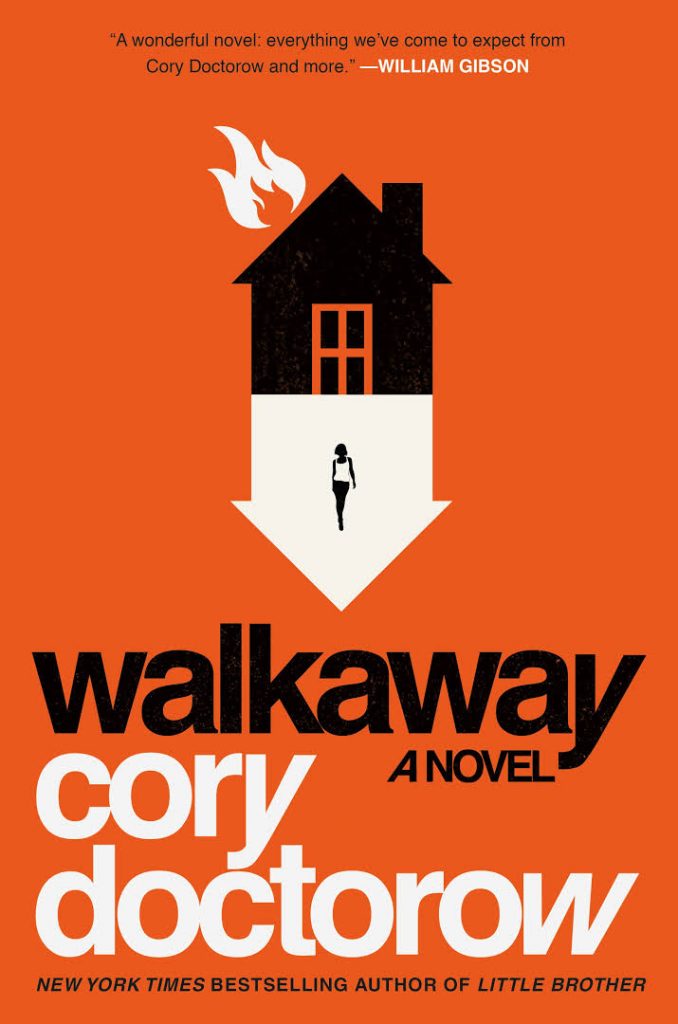(1) CLOSE THE GAP. David Dean Bottrell, Producer, Sci-Fest LA, is asking people to help support The Tomorrow Prize, due to be presented this weekend:
Although Sci-Fest LA has been temporarily side-lined our amazing short story competitions continue!! Unfortunately, a grant we were depending on, has fallen through at the last second, and the awards are this coming weekend! We need your help to make up a $500.00 gap IMMEDIATELY needed to award the prizes to our winners!
Donate at: http://www.lightbringerproject.org/support/
You can make a donation via our new non-profit sponsor, LIGHTBRINGER PROJECT. Please add a note during the payment process for what the donation’s for — You can mention Sci-Fest, Tomorrow Prize or Roswell Award.
(2) INDIGENOUS VOICES. Silvia Moreno-Garcia has posted an update about her efforts to fund and launch an Emerging Indigenous Voices Award. (This would not be an sff award, but was prompted by the Canadian literary controversy reported here last week.)
I’ve gathered $4355 in pledges from people who wish to make this a reality. I’ve also e-mailed Robin Parker, who has also obtained pledges for a similar drive. We could be talking about more than $7,000 if we pool those resources together.
I have sent an e-mail to folks at the UBC Longhouse asking for some guidance.
I feel that if an award does become a reality, it must be managed by an Indigenous organization. I aim merely to help funnel money to them.
It may take some time to sort things out. I am putting together documentation tracking who pledged, how much, etc.
In the meantime, you can fund or support local organizations which represent Indigenous people in your community.
We should not turn to Indigenous and marginalized groups only when bad stuff happens and there are ways to support them that don’t involve donations. Read and review Indigenous literature. Suggest Indigenous artists as guests of honor at conventions. If you have access to a platform, invite them to write op-eds, guest posts, etc….
(3) ESCHEW CHRONOLOGICAL SNOBBERY. L. Jagi Lamplighter Wright raised her voice in defense of Anne McCaffrey at Superversive SF — “When New Is (Not) Best–The Degradation of Grand Master Anne McCaffrey”.
People talk about strong female characters today. Sometimes they mean kickbutt fighters. But when the term first got started, it meant females who held their own, who acted and achieved and accomplished, female characters who were smart.
Lessa was all that. To me, she was the sole female character in SF who really had the qualities I wanted to have. I adored her.
Recently, I was in a store and I picked up a copy of Dragonflight, the original Pern book. I remember thinking, Huh, it probably wasn’t that good. I’ve just glamorized it. Let me see… After all, some of her later books were a bit fluffy. Maybe this early book was just fluff, too, and I had just not noticed. I started flipping through it.
I read an astonishing amount of it before I realized I was standing in a bookstore and embarrassedly put it down.
It was still that good.
(4) THEY KNOW WHEN YOU’RE AWAKE. An author tells about eavesdropping on fan sites in “The Big Idea: Megan Whalen Turner” at Whatever.
As a newbie author, I was self-Googling like mad and just before The King of Attolia was published. I found a livejournal site dedicated to my books. I lurked. I did tell them I was lurking, but I knew right from the start that having authors around is a great, wonderful, exciting thing—right up until they make it impossible to have an honest conversation about their books, so I was careful not too lurk too often. In return, I got to watch these smart, funny people pick through everything I’d written and I became more and more convinced that they didn’t need my input, anyway. Everything in my books that I hoped they’d see, they were pointing out to one another. Watching them, I decided I should probably probably keep my mouth shut and leave readers to figure things out for themselves. That’s why when they got around to sending me a community fan letter, I’m afraid that my answer to most of their questions was, “I’m not telling.” Over the years, it’s hardened into a pretty firm policy.
(5) SPACE OPERA WEEK. Tor.com has declared: It’s Space Opera Week on Tor.com!
Alan Brown has a handle on the history of the term: “Explore the Cosmos in 10 Classic Space Opera Universes”.
During the Golden Age of Science Fiction, there was a lot of concern about the amount of apparent dross being mixed in with the gold. The term “space opera” was originally coined to describe some of the more formulaic stories, a term used in the same derisive manner as “soap opera” or “horse opera.” But, like many other negative terms over the years, the term space opera has gradually taken on more positive qualities. Now, it is used to describe stories that deal with huge cosmic mysteries, grand adventure, the long sweep of history, and giant battles. If stories have a large scope and a boundless sense of wonder, along with setting adventure front and center, they now proudly wear the space opera name.
Ellen Cheeseman-Meyer discusses why she embarked on her Vorkosigan Saga reread series for Tor.com in Space Opera and the Underrated Importance of Ordinary, Everyday Life
The Vorkosigan series is space opera in the really classic style. There are big ships that fight each other with weapons so massive and powerful that they don’t even have to be explained. The most dramatic conflicts take place across huge distances, and involve moving people, ideas, and technology through wormholes that span the Galactic Nexus, and watching how that changes everything. So it’s also about incredibly ordinary things—falling in love, raising children, finding peace, facing death.
And Cheeseman-Meyer’s latest entry “Rereading the Vorkosigan Saga: Borders of Infinity“ covers a lot of ground, but I must applaud this comment in particular —
At this point, I suddenly realize how little time we really get to spend with the Dendarii Mercenaries, who have now appeared as a fighting force in only two of the seven books in the reread.
Liz Bourke, in “Sleeps With Monsters: Space Opera and the Politics of Domesticity”, reminds readers that relationships are the web that connect the infinite spaces of this subgenre.
Let’s look at three potential examples of this genre of… let’s call it domestic space opera? Or perhaps intimate space opera is a better term. I’m thinking here of C.J. Cherryh’s Foreigner series, now up to twenty volumes, which are (in large part) set on a planet shared by the (native) atevi and the (alien, incoming) humans, and which focus on the personal and political relationships of Bren Cameron, who is the link between these very different cultures; of Aliette de Bodard’s pair of novellas in her Xuya continuity, On A Red Station, Drifting and Citadel of Weeping Pearls, which each in their separate ways focus on politics, and relationships, and family, and family relationships; and Becky Chambers’ (slightly) more traditionally shaped The Long Way to a Small Angry Planet and A Closed and Common Orbit, which each concentrate in their own ways on found families, built families, communities, and the importance of compassion, empathy, and respect for other people’s autonomy and choices in moving through the world.
But lest we forget the reason Tor.com exists, Renay Williams plugs the franchise in “A Plethora of Space Operas: Where to Start With the Work of John Scalzi”.
101: Beginner Scalzi
If you’re brand-new to Scalzi’s work, there a few possible starting places. If you want a comedic space opera adventure, you’ll want to start with Old Man’s War and its companion and sequel novels, The Ghost Brigades and The Last Colony. If you’re in the mood for straight up comedy SF, then Agent to the Stars is your entry point. And if you want some comedy but also kind of want to watch a political thriller in your underwear while eating snack food and don’t know what book could possibly meet all those qualifications at once, there’s The Android’s Dream, which is the funniest/darkest book about sheep I’ve ever read.
(6) AMEN CORNER. The celebration also includes a reminder from Judith Tarr: “From Dark to Dark: Yes, Women Have Always Written Space Opera”.
Every year or two, someone writes another article about a genre that women have just now entered, which used to be the province of male writers. Usually it’s some form of science fiction. Lately it’s been fantasy, especially epic fantasy (which strikes me with fierce irony, because I remember when fantasy was pink and squishy and comfy and for girls). And in keeping with this week’s theme, space opera gets its regular turn in the barrel.
Women have always written space opera.
Ever heard of Leigh Brackett? C.L. Moore? Andre Norton, surely?
So why doesn’t everyone remember them?
Because that second X chromosome carries magical powers of invisibility.
And having read that, who would you be looking to for an “Amen!” Would you believe, Jeffro Johnson at the Castalia House Blog? Not from any feminist impulse, but because it fits his own narrative about the Pulp Revolution — “The Truth About Women and Science Fiction”:
…Yes, the “Hard SF” revolution did turn the field into something of a boy’s club. The critical frame that emerged from it has unfairly excluded the work of a great many top tier creators that happened to be female. And much as it pains me to admit it, feminist critics do have a point when they complained about women being arbitrarily excluded.
However… when they treat the Campbellian Revolution as the de facto dawn of science fiction, they are perpetuating and reinforcing the real problem. If you want creators like Leigh Brackett and C. L. Moore to get the sort of attention they deserve, you have to recover not only the true history of fantasy and science fiction. You have to revive and defend the sort of classical virtues that are the root cause of why they have been snubbed in the first place.
(7) TODAY’S DAY
Sea Monkey Day
The history of sea monkeys starts, oddly enough, with ant farms. Milton Levine had popularized the idea of Ant-farm kits in 1956 and, presumably inspired by the success of his idea, Harold von Braunhut invented the aquatic equivalent with brine-shrimp. It was really ingenious looking back on it, and ultimately he had to work with a marine biologist to really bring it all together. With just a small packet of minerals and an aquarium you’d suddenly have a place rich with everything your brine-shrimp needed to survive. So why sea monkeys? Because who was going to buy brine-shrimp? It was all a good bit of marketing, though the name didn’t come about for nearly 5 years. They were originally called “instant life”, referencing their ‘just add water’ nature. But when the resemblance of their tails to monkeys tails was noted by fans, he changed it to ‘Sea-Monkeys’ and so it’s been ever since! The marketing was amazing too! 3.2 million pages of comic book advertising a year, and the money just flowed in the door. So what are Sea Monkeys exactly? They’re clever mad science really. Sea Monkeys don’t (or didn’t) exist in nature before they were created in a lab by hybridization. They’re known as Artemia NYOS (New York Ocean Science) and go through anhydrobiosis, or hibernation when they are dried out. Then, with the right mixture of water and nutrients they can spring right back into life! Amazing!
Wait a minute, that sounds a lot like Trisolarians!
(8) TODAY’S BIRTHDAY BOY
- Born May 16, 1944 – Danny Trejo. Incidentally, he opened a donut shop in Hollywood today – it sold out of donuts in the morning. He also owns a taco shop and a cantina.
(9) COMIC SECTION. Daniel Dern recommends today’s Candorville: “We already knew the creator’s a Star Trek geek, clearly he’s also a (DC) comic book fan…”
(10) DOCTOROW. This is the book Cory Doctorow was promoting at Vromans Bookstore when Tarpinian and I attended his joint appearance with John Scalzi a couple weeks ago. Carl Slaughter prepared a summary:
WALKAWAY
Cory Doctorow
Tor
April 25, 2017
Hubert was too old to be at that Communist party.
But after watching the breakdown of modern society, he really has no where left to be?except amongst the dregs of disaffected youth who party all night and heap scorn on the sheep they see on the morning commute. After falling in with Natalie, an ultra-rich heiress trying to escape the clutches of her repressive father, the two decide to give up fully on formal society?and walk away.
After all, now that anyone can design and print the basic necessities of life?food, clothing, shelter?from a computer, there seems to be little reason to toil within the system.
It’s still a dangerous world out there, the empty lands wrecked by climate change, dead cities hollowed out by industrial flight, shadows hiding predators animal and human alike. Still, when the initial pioneer walkaways flourish, more people join them. Then the walkaways discover the one thing the ultra-rich have never been able to buy: how to beat death. Now it’s war – a war that will turn the world upside down.
Fascinating, moving, and darkly humorous, Walkaway is a multi-generation SF thriller about the wrenching changes of the next hundred years…and the very human people who will live their consequences.
PRAISE FOR WALKAWAY
- “Thrilling and unexpected….A truly visionary techno-thriller that not only depicts how we might live tomorrow, but asks why we don’t already.” Kirkus
- “Doctorow has envisioned a fascinating world…This intriguing take on a future that might be right around the corner is bound to please.” ?Library Journal
- “Memorable and engaging. …Ultimately suffused with hope.” ?Booklist
- “The darker the hour, the better the moment for a rigorously-imagined utopian fiction. Walkaway is now the best contemporary example I know of, its utopia glimpsed after fascinatingly-extrapolated revolutionary struggle. A wonderful novel: everything we’ve come to expect from Cory Doctorow and more.”?William Gibson
- “Cory Doctorow is one of our most important science fiction writers, because he’s also a public intellectual in the old style: he brings the news and explains it, making clearer the confusions of our wild current moment. His fiction is always the heart of his work, and this is his best book yet, describing vividly the revolutionary beginnings of a new way of being. In a world full of easy dystopias, he writes the hard utopia, and what do you know, his utopia is both more thought-provoking and more fun.”?Kim Stanley Robinson
- “Is Doctorow’s fictional utopia bravely idealistic or bitterly ironic? The answer is in our own hands. A dystopian future is in no way inevitable; Walkaway reminds us that the world we choose to build is the one we’ll inhabit. Technology empowers both the powerful and the powerless, and if we want a world with more liberty and less control, we’re going to have to fight for it.”?Edward Snowden
(11) LITFEST PASADENA. In addition to the Roswell Award and Tomorrow Award readings, this weekend’s LitFest Pasadena includes these items of genre interest:
Saturday
Famed afro-futurist writer Nalo Hopkinson (The Chaos) joins the Shades & Shadows Reading Series for an evening of dark fiction from noir mystery to sci-fi.
Sunday
Popular comic book and TV writer Brandon Easton (Agent Carter), joins fellow comic book writers to discuss “Manga Influences on American Culture.”
(12) SPEAKING PARTS. Pornokitsch shows why someone could argue “Middle Earth Has Fewer Women Than Space”.
This research is from April 2016. The folks at The Pudding analysed thousands of screenplays and did a word count of male and female dialogue.
Unsurprisingly: Hollywood skews heavily in favour of dudes talking.
Naturally, I looked for all the nerdiest films I could find. This was a lot of fun, although the results were… pretty bleak. …..
There follows a whole chart about genre films.
…2001 is literally a film about two dudes floating in space, and it has a higher percentage of female dialogue than two of the Lord of the Rings films.
(13) IOU. Jon Del Arroz thinks I should be paying him when I put him in the news. Now there’s an innovative marketing mind at work.
File 770 should be paying me for content at this juncture.
— Jon Del Arroz (@jondelarroz) May 16, 2017
(14) PANTHER UNPLUGGED. Ernie Estrella at Blastr demands — “So why did Marvel pull the plug on Black Panther & The Crew after just two issues?”
How long should a comic book aimed at reaching a more socially aware audience be given latitude before it’s canceled? According to Marvel Comics, just two. Marvel is canceling one of two monthly titles that Ta-Nehisi Coates writes, Black Panther & The Crew. After two issues have underperformed in sales, the title has been abruptly put on notice. Marvel had seen enough and was not satisfied by the early numbers to stick with a title while it finds its audience. Coates told Verge that issue #6 will be the series’ finale, wrapping up the storyline that was introduced in the debut issue, which came out in this past March.
Coates co-writes the series with Yona Harvey, and together they crafted a story starring Black Panther, Storm, Misty Knight and Luke Cage investigating the murder of a civil rights activist who died while in police custody, Ezra Keith. Relevant to America’s current societal problems facing inherent racism, Coates and Harvey’s story also dives into the main four heroes and tries to look deeper at their varied experiences as black people in the Marvel Universe….
(15) NEW GRRM ADAPTATION. George R.R. Martin gives fans the background on developments they’ve been reading about in the Hollywood trade papers — “Here’s the Scoop on NIGHTFLYERS”.
In 1984 I sold the film and television rights to “Nightflyers” to a writer/ producer named Robert Jaffe and his father Herb….
This new NIGHTFLYERS television series — actually, it is just a pilot script at present, still several steps short of going on-air, but I am told that SyFy likes the script a lot — was developed based on the 1987 movie, and the television rights conveyed in that old 1984 contract. Robert Jaffe is one of the producers, I see, but the pilot script is by Jeff Buhler. I haven’t had the chance to meet him yet, but hope to do so in the near future.
Since I have an overall deal that makes me exclusive to HBO, I can’t provide any writing or producing series to NIGHTFLYERS should it go to series… but of course, I wish Jaffe and Buhler and their team the best of luck. “Nightflyers” was one of my best SF stories, I always felt, and I’d love to see it succeed as a TV series (fingers crossed that it looks as good as THE EXPANSE).
[Thanks to Greg Hullender, Carl Slaughter, John King Tarpinian, and Cat Eldridge for some of these stories. Title credit goes to File 770 contributing editor of the day Ingvar, with an assist from Camestros Felapton.]




